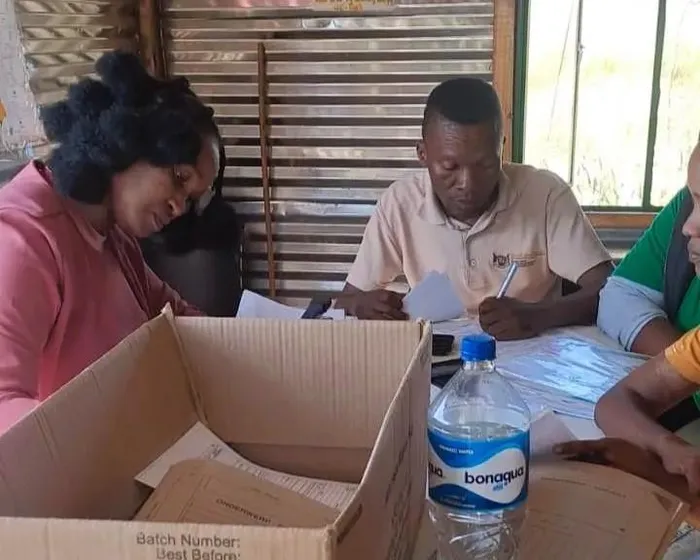When disaster strikes, relief must be swift - and human
'Behind the numbers are real people'

Sassa staff "on the ground" to assistant clients with SRD applications during the recent floods in the Frances Baard District.
Image: SA Social Security Agency
OPINION | Following the DFA's recent report on Sassa’s flood relief efforts in Frances Baard, the agency’s provincial spokesperson unpacks the broader significance of the Social Relief of Distress (SRD) programme – not merely as emergency aid, but as a vital instrument of dignity, care, and constitutional responsibility during times of crisis.
By Lungelo Mkamba
THE RECENT floods and heavy rains in parts of the Frances Baard District Municipality didn’t just damage homes and possessions - they undermined the fragile sense of stability that many families had painstakingly built. For those living on the margins, a single storm can unravel livelihoods, displace families, and deepen uncertainty.
In the aftermath, the Social Relief of Distress (SRD) programme - administered by the South African Social Security Agency (Sassa) - offered a vital form of support. Designed for moments like these, the SRD programme allows the state to respond quickly and with empathy when disaster strikes.
It’s important to emphasise: the SRD is not charity. It is rooted in our constitutional values and in the understanding that government’s role is not simply to deliver services, but to uphold human dignity.
Between April and May 2025, intense rainfall caused widespread damage in communities such as Gong Gong, Pniel, Riverton, and Killarney. Many families lost not only furniture and clothing but also essential documents and school uniforms. Sassa teams were dispatched to assess the situation, and 58 households have since received once-off cash payments of R2,310 - aligned with the Older Person’s Grant. In addition, 14 school uniforms were provided to affected learners. The total value of this support was R209,780.
Behind those numbers are real people - a child whose mattress was washed away, a grandmother without a bed. These aren’t statistics; they are stories that remind us why rapid, human-centred responses matter.
The SRD programme is one of government’s more agile tools. Whether in the form of cash, uniforms, or food parcels, it’s about meeting people where they are - helping them to regain a sense of control, and restoring not just material possessions but personal dignity.
The programme operates under the Sassa Act and its regulations, ensuring that assistance is lawful, targeted, and needs-based. For the 2025/26 financial year, resources have been allocated to ensure that such interventions continue when most needed. In the previous year, more than 1,500 individuals and families in the Northern Cape received support through this programme during times of crisis.
Having worked closely with affected communities, I’ve seen how resilience often comes hand in hand with timely support. But a fast, effective response requires collaboration. Municipalities play a key role in verifying and submitting the names of affected households. Without that information, even the most well-intentioned response can fall short.
The public also has a role to play - reporting cases of hardship to their local authorities to ensure the information reaches Sassa quickly.
The SRD programme may not always make headlines, but its impact is deeply felt. It helps children stay in school. It gives families a way to begin again. And perhaps most importantly, it sends a message: that in difficult times, people are not alone.
* Lungelo Mkamba is the spokesperson of Sassa in the Northern Cape.
…
* The opinions expressed in this article are those of the author and do not necessarily reflect the views or policies of the DFA or its staff. While we strive to provide a platform for diverse perspectives, the content remains the sole responsibility of the contributor.
** Do you have something on your mind? We’d love to hear from you! Share your thoughts, opinions, or experiences by submitting a Letter to the Editor. Your voice matters and could inspire or inform others in our community. Submit your letter via e-mail to info.dfa@acm.co.za and you could see your words featured in the DFA.

We’d love to hear from you!
Image: DFA
Related Topics: